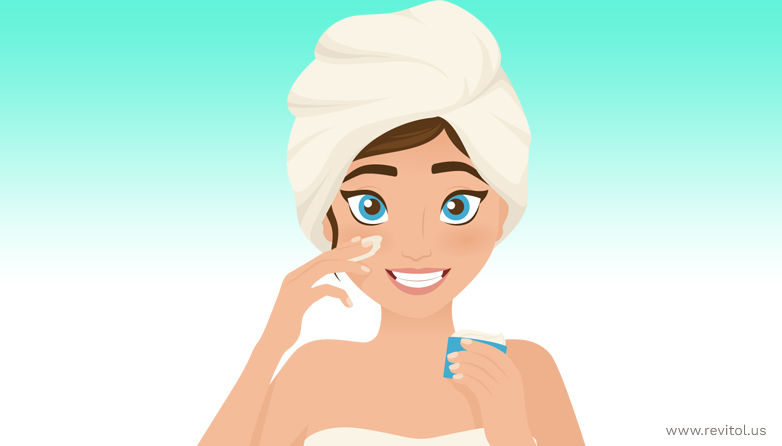
Basic Skincare Routine for Acne-Prone Skin
Acne at any age can be quite frustrating to handle. Most teens are troubled and frustrated by acne due to oily skin… and consider it to be just a hormonal teen-associated pesky issue.
Most of the times acne makes its first appearance at around 10-13 years of age and continues to thrive till the early 20s. Not that acne disappears after that, as it is known to recur at any stage later too around 30s or 40s.
Acne occurs when there is excessive Sebum production by Sebaceous glands (Oil glands present in skin) that clogs Follicles on your skin and their openings called Pores. Allowing bacteria to grow in these clogged pores causes inflammation and we get Pimples or Acne. However, it is not just the bacteria and clogged pores that contribute to acne-prone skin. Other factors such as Genetics, Hormones, Medications like steroids and Over-washing of skin with moisture-stripping harsh exfoliators can also cause acne.
Given the right kind of care oily skin and associated acne too can be brought well under control.
Here is an effective yet simple-to-follow skin-care routine that acts tough on the oil and prevents breakouts. A consistent skin-care routine can be very effective in restoring the skin to its natural health and to get rid of acne.
AWARENESS & CARE
A little knowledge and care go a long way to help you tweak and tailor your skin-care routine to ensure your skin is free from acne & breathing its best life in all seasons. Be aware of your skin type and how best to manage acne.
CLEANSING YOUR FACE
Wash your face twice daily with tepid water, but do not over-wash. Frequent washing of face runs the risk of drying & irritating your skin and stripping it of its natural oils that are good for the skin.
The most effective face wash for acne-prone skin should have either Glycolic Acid or Salicylic Acid.
Astringents can also be used to keep oily skin at bay as they tone the skin by removing excess oil and tighten the pores temporarily.
NO ABRASIVE EXFOLIATION
Exfoliation helps in the removal of dead skin cells especially the dead cell build-up on the skin which can aggravate acne by plugging up the pores. Regular gentle exfoliation can aid smoothening and softening of the skin to brighten your complexion. This takes care of breakouts as well by preventing clogging of pores with the pus of dead cells and sebum (skin oil). Harsh, granular exfoliators should not be used very often because of their tendency to irritate the inflamed skin. This may further lead to small tears in the skin with bleeding spots. The right kind of exfoliant is essential for getting good results without irritating your skin and aggravating acne.
ESTABLISH A HEALTHY SKIN-CARE ROUTINE & REMEMBER
- Do not ever pick, pop, squeeze or mess with the acne on your skin. This can spread bacteria, cause extensive breakouts and lead to permanent scarring.
- Try not to touch your skin very often to avoid the transmission of bacteria. Develop a habit of keeping your nails clean and preferably clipped.
- Remove your sweaty clothes and shower immediately after your workout. Sweat settling on your face and body is a direct invitation to acne.
- Watch what you eat. A high glycemic index diet can impact your acne condition critically.
So, if you’re getting serious about curbing acne, indulge in a diet rich in fiber, with plenty of fruits and vegetables.
A consistent skin-care routine of cleansing, gentle exfoliation, and the use of non-comedogenic skincare products, specifically formulated for acne, will help you get rid of acne. For the treatment of more severe cases, such as cystic acne, it is best to consult a dermatologist who will be able to recommend a clinical treatment plan.
Deprecated: Function get_magic_quotes_gpc() is deprecated in /var/www/html/sea_health2/revitol.us/wp-content/themes/ultima/framework/lib/qode.functions.php on line 280
Deprecated: Function get_magic_quotes_gpc() is deprecated in /var/www/html/sea_health2/revitol.us/wp-content/themes/ultima/framework/lib/qode.functions.php on line 280
Deprecated: Function get_magic_quotes_gpc() is deprecated in /var/www/html/sea_health2/revitol.us/wp-content/themes/ultima/framework/lib/qode.functions.php on line 280


